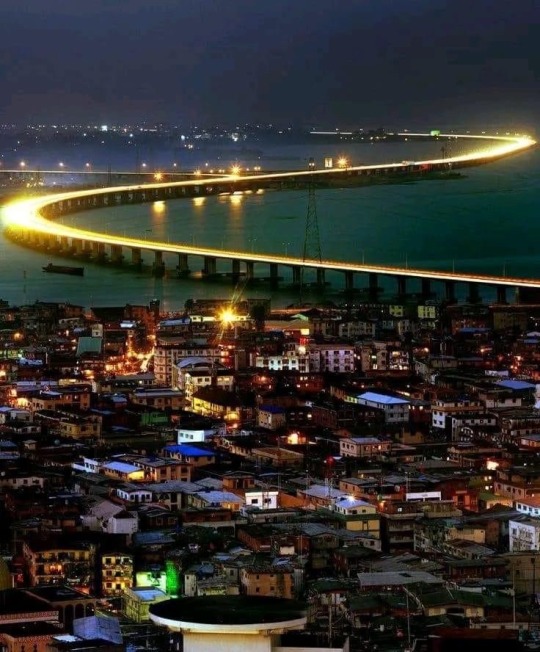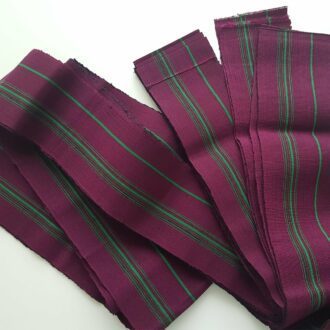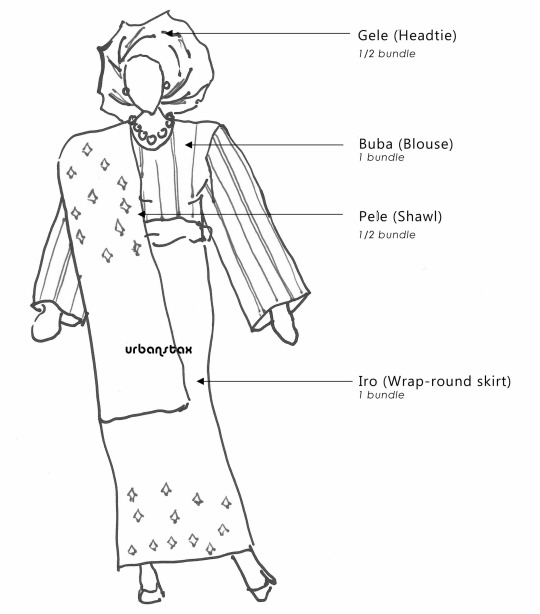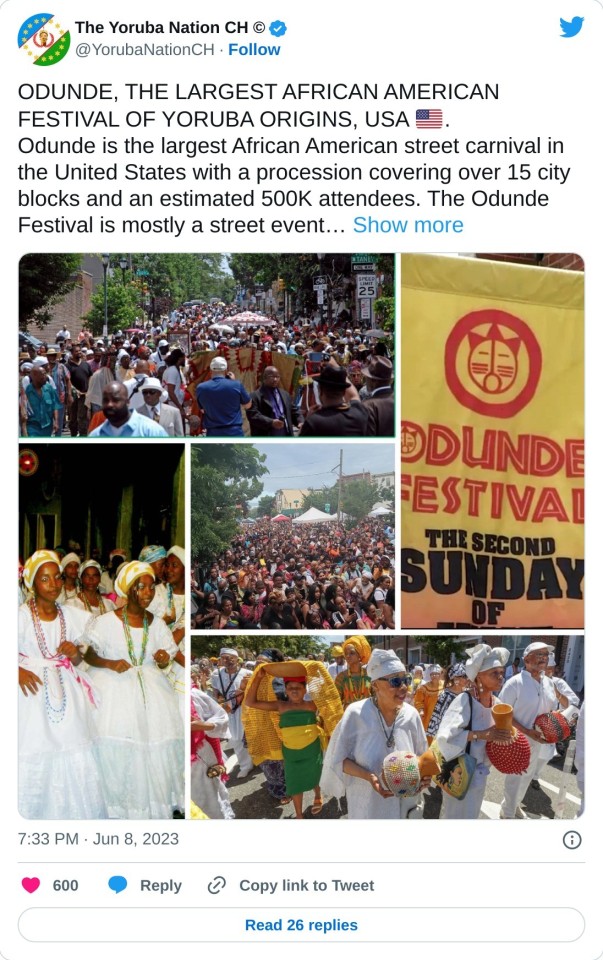#osun festival
Explore tagged Tumblr posts
Text
Osun Devotees Went In Trace - Supernatural - Osun Owena ijesa Festival 2...
youtube
11 notes
·
View notes
Text
The Mystery of the Osun-Osogbo Sacred Grove in Nigeria
The mysterious Osun-Osogbo Sacred Grove is a landmass covering about 75 hectares of land and is dedicated to the Osun goddess of fertility. Located in Osogbo, a city in Osun State in Nigeria, Africa, this forest area is home to various sacred shrines devoted to different deities in Yoruba land. The area is considered sacred with a connection of different spiritual paths that link the major divisions together. The area seems perfectly created for sacred rituals as the Osun river cuts across the area and gives an ambiance of spiritual presence. There used to be similar popular places for rituals in Yoruba land but over time most of them were converted and only a few remain, the most important being the Osun-Osogbo Sacred Grove. It is for this reason that it was declared a World Heritage site by UNESCO in 2005 and stands out as one out of the two World Heritage sites in Nigeria at present.

The Osun Osogbo Sacred Grove is believed to house about forty shrines spread across the various parts of the forest and representing several different deities. The sacred nature of the grove makes it an attractive place for spiritual practices. As a sacred area, such activities as farming, hunting, and fishing are highly prohibited and only traditional healers are allowed to gather plants that grow there for use in their practices. The grove gets several visits per year from both the Yoruba worshipers who are consistent in their local worship and those who visit the place as a tourist center. Rituals are performed at the different shrines regularly by ardent worshippers of the different deities. There are many varieties of wild animals present in the forest area and they continue to increase in their numbers due to the banning of hunting activities and any form of disturbance from external influence.
History of the Osun-Osogbo Sacred Grove
There are several folktales connected to the origin of the Osun-Osogbo sacred grove. However, what is certain is that its history is highly connected to the history of the Yoruba culture and traditional religion in general. READ MORE...
1 note
·
View note
Text

Nigeria🇳🇬 is still the Giant of Africa not because of population but because of these impressive achievements 👇
Entertainment
1. Best actors in Africa
2. Best comedians in Africa
3. Best musicians in Africa
4. Best YouTubers in Africa
Sports
1. Best female footballer in Africa
2. Best male footballer in Africa
3. Best female basketball team in Africa (Nigeria's D'Tigress)
4. The most African Games medal winners
Business
1. Richest man in Africa (Aliko Dangote)
2. Largest single estate in Africa
3. Richest woman in Africa (Folorunsho Alakija)
Agriculture
1. Largest producer of rice in Africa
2. Largest producer of yams in Africa
3. Largest producer of tomatoes in Africa
4. Significant producer of cassava, maize, and sorghum
Energy
1. Largest producer of crude oil in Africa
2. Natural gas reserves
Culture
1. Rich cultural heritage (over 250 ethnic groups)
2. Vibrant traditional festivals (e.g., Osun Osogbo, Eyo)
3. UNESCO World Heritage sites (e.g., Osun Osogbo Sacred Grove)
Innovation
1. Thriving tech scene (e.g., Andela, Interswitch, flutterwave, sabi and more.
2. Innovators (e.g., Sim Shagaya, Jason Njoku)
Other notable achievements:
1. Nobel laureate (Wole Soyinka)
2. Renowned authors (e.g., Chinua Achebe, Ben Okri)
3. Successful diaspora community
In conclusion it is responsibility of every Nigerian to make Nigeria better🇳🇬
God bless Nigeria
#TogetherWeRise✊
#buildafrica🛖
#weloveafrica🖤
#OneAfrikaOneNation🫶🏻
#WeareAfrika🌍
#historyfacts🌏🗺️
#know9jabetter
African hype media
20 notes
·
View notes
Text
Aso-Òkè: Meet Oodua (Yoruba) woman in 2023 - Photo of the day


What is Aso-Òkè?
Aso Oke (pronounced ah-SHOW-kay) is short for Aso Ilu Oke which can be interpreted means clothes from the countryside. It can be sometimes known as Aso-Ofi. Ofi identifies the seat of the weavers take a seat on when weaving the cloth. It is just a hand-woven cloth made mostly by the Yoruba tribe of southwest Nigeria. There's a vast tradition of strip woven textiles in Africa and West Africa specifically; for instance Kente from Ghana or Akwete from Eastern Nigeria and Burkina Fasso's Faso Dan Fani. The woven strips produced are normally sewn together to create traditional clothing. The clothing created from Aso-Òkè is worn to special events such as festivals, weddings, coronations, and the like. It can be what traditional rulers wear especially during such festive occasions. It sometimes appears as probably the most special of traditional fabrics in Nigeria. It serves traditionally as formal wear. Aso-Oke is usually also worn as Aso-Ebi (ebi meaning friends, and/or family) where similar colours are worn by all to a certain event to symbolise unity. Originally there have been three main kinds of traditional Aso-oke based on the colours.
Types of Aso-Òkè
ETU:

Etu is just a deep blue, indigo-dyed cloth often with very thin light blue stripes. Etu means guinea fowl, and the cloth is believed to resemble along with of the bird's plumage. SANYAN:

Sanyan is woven from the beige silk obtained locally from the cocoons of the Anaphe moth. This is left undyed forming a light brown/beige cloth. The custom was to wear Sanyan to weddings and funerals. ALARI:

Alaari is woven from magenta waste silk and could be the deep red version of Aso oke. Today, aso-oke comes in a vast array of colours and designs which can be no further restricted to traditional colours.

Vintage Agbada Aso Oke from Africa Direct on Etsy Production The cloth is produced mainly in Iseyin (Oyo state), Ede (Osun state) and Okene (Kogi state) all in Southern Nigeria. “Sanyan ni baba aso, alari ni baba ewu.” https://youtu.be/I_hJwWEgarI WOMEN- The complete outfit for a Yoruba woman consists of the following elements; - Iro�� a large wrapper tied like a wrap-around skirt - Buba– a loose fit blouse worn on top - Gele– a head-tie - Pele– a shawl that goes around the waist or over the shoulder - Iborun– a scarf

MEN- The complete outfit for a Yoruba man consists of the following elements; - Buba– a loose fit top/shirt - Shokoto– loose fit trousers - Agbada– a large robe worn over the Buba - Fila– a soft cap

Where to buy Aso-Òkè
Finally, do check out this selection of Aso oke, be it for a traditional outfit or something that you have been inspired to make. Read the full article
7 notes
·
View notes
Photo

Oshun
Oshun (también Òşun) es una entidad sobrenatural reconocida como espíritu y diosa en la religión yoruba de África Occidental. Rige sobre la fertilidad, el amor y el agua dulce, es la patrona del río Osun en Nigeria y se la honra anualmente en el Festival Osun-Osogbo.
Lire la suite...
3 notes
·
View notes
Text
OSHUN // YORUBA ORISHA OF WATER, PURITY, FERTILITY, LOVE & SENSUALITY
“She is the Yoruba orisha associated with love, sexuality, fertility, femininity, water, destiny, divination, purity, and beauty, and the Osun River, and of wealth and prosperity in Voodoo. She is considered the most popular and venerated of the 401 orishas. In the mythology, Oshun was once the queen consort to King Shango of Oyo, and deified following her death, honored at the Osun-Osogbo Festival, a two-week-long annual festival that usually takes place in August, at the Oṣun-Osogbo Sacred Grove in Osogbo. A violín is a type of musical ceremony in Regla de Ocha performed for Osún. It includes both European classical music and Cuban popular music.”

0 notes
Text
Six 'isese' Worshippers Stoned, Injured In Suspected Muslim Attack
A recent festival in Ile-Ife, Osun State, turned violent when Isese worshippers were attacked by suspected Muslims, leaving six people injured. During a telephone conversation with Oba Alamo Obatala, a prominent Isese traditional worshipper in the town, SaharaReporters learned that the incident occurred on January 20, 2025, during a Obatala Festival. According to Oba Alamon Obatala, the group…
0 notes
Text
Tensions Erupt in Osun State as Suspected Muslims Attack Isese Worshippers
Six people, including a woman, were injured when Isese worshippers were attacked by suspected Muslims at a festival in Ile-Ife, Osun State on January 20, 2025. Oba Alamo Obatala, a prominent Isese traditional worshipper in the town, told SaharaReporters that the group had announced the festival on the radio for four consecutive days, warning people to stay away from the procession…
0 notes
Text
Celebrate Nigeria: Unveiling Vibrant Cultural Festivals across the Nation

# Celebrate Nigeria: Unveiling Vibrant Cultural Festivals across the Nation
Introduction
Nigeria, a country known for its rich cultural heritage and diverse traditions, is home to a myriad of colorful and vibrant festivals that showcase the beauty and diversity of its people. Have you ever wondered about the cultural tapestry that weaves through Nigeria's festivals, uniting various ethnic groups in celebration? In this blog post, we will delve into the heart of Nigeria's Cultural Festivals, exploring the significance, traditions, and sheer exuberance that define these events.
The Diversity of Nigeria Cultural Festivals
Nigeria's cultural festivals are a vibrant tapestry that reflects the country's diverse ethnic groups, traditions, and history. From the bustling streets of Lagos to the serene landscapes of Calabar, each region of Nigeria boasts its own unique celebrations that captivate both locals and tourists alike. Let's embark on a journey through some of Nigeria's most renowned cultural festivals:Osun-Osogbo FestivalThe Osun-Osogbo Festival, held annually in Osun State, is a celebration dedicated to the river goddess Osun. This festival attracts thousands of worshippers and tourists from far and wide to partake in the colorful processions, dances, and rituals that honor Osun, the deity of fertility and purification.- The festival includes the Arugba procession, where a chosen maiden carries offerings to the river, symbolizing the renewal of life and prosperity. - Visitors can witness traditional performances of drumming, dancing, and masquerades that fill the air with a pulsating rhythm. - Practical Tip: To fully experience the Osun-Osogbo Festival, arrive early to witness the rituals at the sacred grove and immerse yourself in the spiritual ambiance. - The festival features elaborate horse-riding displays, traditional music performances, and vibrant exhibitions of local crafts and textiles. - Visitors can marvel at the skillful horsemanship of riders who execute intricate maneuvers and formations with grace and precision. - Actionable Advice: For a prime viewing spot at the Durbar Festival, position yourself along the parade route early to witness the procession in all its splendor. - The Eyo Masquerades, adorned in vibrant regalia, move through the city streets in a procession accompanied by drummers, dancers, and spectators. - This festival embodies the spirit of camaraderie and unity as participants from different socio-cultural backgrounds come together to celebrate shared heritage. - Expert Insight: The Eyo Festival offers a unique opportunity to witness Lagos' cultural heritage and traditional artistry firsthand, making it a must-see event for visitors. - The highlight of the festival is the fishing competition, where fishermen armed only with traditional nets dive into the river in a race to catch the biggest fish. - Spectators can enjoy traditional music, dance performances, and cultural displays that reflect the vibrant heritage of the region. - Best Practice: To fully appreciate the excitement of the Argungu Fishing Festival, engage with locals, participate in cultural activities, and savor traditional delicacies offered during the event. - The festival features offerings of newly harvested yams to deities and ancestors, accompanied by prayers and blessings for a bountiful harvest. - Communities come together to showcase traditional dances, music, and masquerades that embody the cultural identity and heritage of the region. - Real-World Example: The Iriji-Mmanwu Festival in the Igbo community is a vibrant celebration of the New Yam Festival, where masquerades known as Mmanwu perform acrobatic feats and entertain spectators during the festivities. - The festival features art installations, fashion shows, live music performances, and culinary experiences that highlight the richness and vibrancy of African culture. - Visitors can engage with local artists, designers, and performers to gain insight into the creative process and cultural significance of their work. - Practical Tip: To make the most of your experience at the Lekki African Culture Festival, attend workshops and interact with artisans to learn about traditional crafts and techniques firsthand.
Conclusion
In conclusion, Nigeria's Cultural Festivals offer a captivating glimpse into the country's heritage and traditions, showcasing the diversity and vibrancy of its people. As we've explored the Osun-Osogbo Festival's spiritual reverence, the Durbar Festival's equestrian spectacle, and the New Yam Festival's agricultural roots, it becomes evident that these celebrations are more than just events—they are a testament to the resilience and creativity of Nigerian culture.By immersing ourselves in the sights, sounds, and flavors of festivals like the Argungu Fishing Festival and the Eyo Festival, we gain a deeper appreciation for the interconnectedness of Nigeria's various ethnic groups and the enduring spirit of unity that underpins these celebrations. As we celebrate Nigeria through its Cultural Festivals, let us embrace the shared values of community, heritage, and joy that bind us together in a tapestry of cultural richness.Join the conversation: Which Nigeria Cultural Festival resonates with you the most? Share your thoughts and experiences in the comments below!
Frequently Asked Questions
Q: Are Nigeria Cultural Festivals only for locals, or can tourists participate? A: Nigeria Cultural Festivals welcome both locals and tourists to partake in the celebrations and experience the rich tapestry of Nigerian culture firsthand. Q: How can I prepare for attending a Nigeria Cultural Festival? A: To prepare for attending a Nigeria Cultural Festival, research the festival's traditions and customs, dress modestly and respectfully, and be open to immersing yourself in the cultural experience.Q: Can I participate in the rituals and ceremonies of Nigeria Cultural Festivals? A: While some Nigeria Cultural Festivals allow for spectator participation, it is essential to respect the sacredness and significance of rituals and ceremonies by observing from a respectful distance unless invited to participate.Q: Are Nigeria Cultural Festivals safe for visitors to attend? A: Nigeria Cultural Festivals prioritize safety and security for all participants and visitors. It is advisable to follow local guidelines, seek information from official sources, and exercise caution when attending large gatherings.Q: How can I learn more about Nigeria Cultural Festivals throughout the year? A: To stay informed about Nigeria Cultural Festivals taking place throughout the year, follow official tourism websites, local event calendars, and cultural organizations that promote traditional celebrations.Q: Are there opportunities for cultural exchange and engagement at Nigeria Cultural Festivals? A: Nigeria Cultural Festivals provide ample opportunities for cultural exchange and engagement, allowing visitors to interact with locals, artisans, and performers to learn about traditional practices, crafts, and customs.Q: How can I support the preservation and promotion of Nigeria Cultural Festivals? A: To support the preservation and promotion of Nigeria Cultural Festivals, consider attending festivals, purchasing crafts and artworks from local artisans, and sharing your experiences with others to raise awareness about the cultural heritage of Nigeria.
Tags
Nigeria Cultural Festivals, Osun-Osogbo Festival, Durbar Festival, Eyo Festival, Argungu Fishing Festival, New Yam Festival, Lekki African Culture Festival, Nigerian traditions, cultural heritage. Read the full article
0 notes
Text
List of States Where Workers Will Not Work Tomorrow and Why. Civil servants in several states in Nigeria's Southwest region will observe a public holiday on Tuesday, August 20, 2024, to celebrate Isese Day. Isese Day is a traditional festival recognized primarily by the Yoruba people, marking a day of prayers, sacrifices, and cultural celebrations. The term "Isese" translates to "tradition" in Yoruba, and the day is devoted to honoring Yoruba traditional practices. Below is a list of states where workers will not be working tomorrow due to the Isese Day public holiday: Lagos State: Reason: The Lagos State Government, for the first time, has declared August 20 as a public holiday to celebrate Isese Day. The declaration was made by Governor Babajide Sanwo-Olu, and public servants are expected to resume work on August 21, 2024. Ogun State: Reason: Ogun State Government has also declared a public holiday for Isese Day on August 20, 2024. The state government aims to promote religious inclusivity and has encouraged traditional worshippers to celebrate the day in moderation while respecting other religions. Osun State: Reason: Osun State has observed Isese Day as a public holiday since 2012. Governor Ademola Adeleke reaffirmed this tradition for August 20, 2024, and urged traditionalists to pray for the state's prosperity and unity among different religious groups. Oyo State: Reason: Governor Seyi Makinde of Oyo State has declared August 20, 2024, as a work-free day to honor Isese Day. The governor has encouraged citizens to use the day to pray for peace, unity, and stability in the state and the country at large. Context of the Public Holiday: Isese Day is recognized by the Ancient Religion Societies of African Descendants International Council and is observed with various cultural practices, including prayers, sacrifices, and dances. The dominant colors of the festival are white, red, and black. The celebration underscores the importance of preserving Yoruba traditions and cultural heritage. States Not Observing Isese Day: While Isese Day is celebrated in several Southwest states, other regions in Nigeria do not observe the holiday. The public holiday is specific to states with significant Yoruba populations where traditional worship is deeply rooted
0 notes
Text
"Oodua Festival to hold June 23rd - 25th in Osun" - FTAN
http://dlvr.it/T7CD4W
0 notes
Text

I love attending Odunde'. its a fantastique traditional weekend where we really show our Yoruba traditions to those who come and enjoy it. it's held in Philadelphia,PA. if you've never come before, add it to your summer next year. its fun for the whole family.
Odunde is the largest African American street carnival in the United States with a procession covering over 15 city blocks and an estimated 500K attendees.
The Odunde Festival is mostly a street event catered to the interests of African-Americans & the African diaspora.
Odunde means 'Coming of the New Year'.
It is derived from the traditions of the Yoruba people of West Africa in celebration of the new year according to the traditional Yoruba calendar or Kọ́jọ́dá, which usually falls on the first moon of June (Òkudù) on the Gregorian calendar, and holds Annually in the city of Philadelphia. The festival logo is an Àkẹtè (fìlà) Abetí ajá on a stylized face with three Yoruba marks on each cheek.
The Odunde festival started in Philadelphia in 1975. Lois Fernandez and her friend Ruth Arthur organized the first Odunde Festival. It took place in April 1975, as the "Oshun Festival". This was because Fernandez was motivated to start the series of events that would later morph into the Odunde festival after a spiritual pilgrimage to the Osun-Osogbo festival of the Yoruba people.
Today, Osun remains a major component of the festivities, which begins with an all inclusive procession leading to the Schuylkill River where fruits and flowers are offered. This years Odunde street parade/festivities kicks off on Sunday, June 11, at 23rd Street and South Street, Philadelphia.
4 notes
·
View notes
Text
By • Olalekan Fagbade INSECURITY; "Emir" declared wanted by Police Command arrested whisked to Abuja for interrogation The Osun State Police Command has arrested Oyeyemi Ajagungbade Olalekan, a notorious thug in the state. According to DAILY POST, Olalekan, also known as Emir, was reportedly arrested by operatives of the Anti-Kidnapping Unit of the command. It was also gathered that he was tranaferred to the Force Headquarters, Abuja, immediately after his arrest. The Command had declared him wanted on July 2, 2022, for alleged murder, cultism, and armed robbery. The Osun State Governor, Ademola Adeleke, appointed him a member of the Transport Disciplinary Committee of the state on January 9, 2023. A police source confirmed that he was arrested few days ago for beating a man with dangerous objects, including a knife and machete, and the man was in coma in an undisclosed hospital in the state. It was gathered that relatives of the victim reported the matter to the Inspector-General of Police who ordered the Anti-Kidnapping Unit to bring him to Abuja. He was released and later rearrested while the state Commissioner of Police, Patrick Kehinde Longe, received the signal to transfer him to Abuja. “He was asked to report to the office of Anti-Kidnapping in Osogbo to settle the matter with his victim and he drove in. He had been arrested before the officers informed the Commissioner of Police that they had an order from the IGP to bring the suspect to Abuja. He was whisked to Abuja in a Hilux with his car,” the source said. Olalekan had been fingered in the killings of five persons including Oyewale Sherif after the inauguration of Governor Adeleke and the burning alive of one person, Olalekan Waheed. He was alleged to have have also led thugs to snatch ballot boxes in Boripe, Osogbo and Olorunda local governments during the general elections in the state. The Osun State Chapter of All Progressives Congress, APC, during and after the general elections petitioned the police authorities and raised an alarm over his criminal activities which included killings and physical attacks on its members. He was also alleged to have been involved in the killings of more than five persons during the recently concluded Osun Osogbo festival in August. Eyewitnesses alleged he escaped in Adeleke’s convoy to avert being arrested by the police. The spokesperson of the Osun State Police Command, Yemisi Opalola, however, declined to comment on the matter.
0 notes
Text
Happy New Calendar Year!!! It is 10066 of the Oodua Yoruba Calendar-–-KỌ́JỌ́DÁ
‘Ki Ọ́JỌ́ DÁ: Meaning; May The Day Be Clear or Foreseen; is the name of Yórúbà Calendar. Akù Odùn Tìtún o! Eyìn Omo Yórubà nìlè lókó, léyín ódì! It is 10,066th of the Yoruba Calendar (Kojoda, which means “May The Day Be Foreseen”). The New Year begins on June 3rd (Okodu 3) of the Gregorian Calendar. This means, 10,066th year of recorded Yoruba history since the establishment of the calendar according to Scholars by Orunmila. However we used to have 4 days/week, but later reconciled it with the Gregorian calendar 7days/week (Note). Before the western Gregorian calendar, Yorubas used a lunar calendar. The Yoruba year begins June 3 of this year to June 2nd the following year. The traditional calendar had a 4 day week, 7 week month, and 12 month year. The Yoruba calendar (Kojoda) has a year beginning on the last moon of May or first moon of June of the Gregorian calendar, and an era of 8042 BC. The new year coincides with the Ifá festival. It started about 10,066th years ago, when Ife-Oodaye was populated by the Orishas. It was the work of Orunmila and Obatala. The traditional Yoruba week has four days. The four days that are dedicated to the Orisa go as follow: Day 1 is dedicated to Obatala (Sopanna, Iyaami, and the Egungun) Day 2 is dedicated to Orunmila (Esu, Ifá and Osun). Day 3 is dedicated to Ogun (Osoosi). Day 4 is dedicated to Sango (Oya) To reconcile with the Gregorian calendar, Yoruba people also measure time in seven days a week and four weeks a month. The four-day calendar was dedicated to the Orisas and the seven-day calendar is for doing business. The seven days are: Ojo-Aiku (Sunday), Ojo-Aje (Monday), Ojo-Ishegun (Tuesday), Ojo-Riru (Wednesday), Ojo-Bo/Alamisi (Thursday), Ojo-Eti (Friday) and Ojo-Abameta (Saturday). Oṡu in Yoruba calendar. ÒKÙDÚ June AGḖMṐ July ÒGÚN August OWḖwḖ September ṐWAwa October BḔLU November ṐPḖ December ṠḔRḔ January ÈRÉLE February ḔRḔNA March IGBE April ḔBÍBÍ May Happy New Year! Aseyi samodun o! Read the full article
0 notes
Text
“Oṣun is honored at the Osun-Osogbo Festival, a two-week-long annual festival that usually takes place in August, at the Oṣun-Osogbo Sacred Grove on the banks of the river. Oṣun is one of the 401 Yoruba gods”
There’s 401??? Goddamn the Spirit Realms are something otherwordly
0 notes